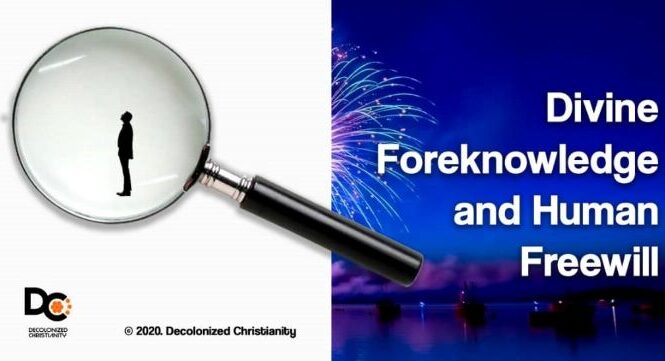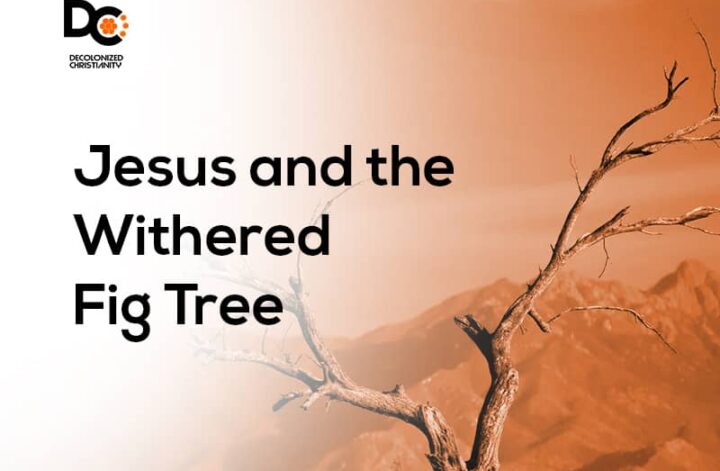This piece continues our series investigating some problematic passages often read through deterministic lenses.
7. God turns the king’s heart in whatever ways that God wants
Proverbs 21:1 says, “The king’s heart is in the hand of the LORD; he directs it like a watercourse wherever he pleases.” This uses gardening imagery. In ancient Israel (and many lands around the world today), rivers served irrigation purposes. Because they are small water bodies, rivers’ flow paths can be altered depending on the irrigation needs of the farmers. Similarly, this proverb proclaims that God can turn kings’ hearts. The issue here should be obvious. If God directs or controls the heart (and the will) of a king however God wants, the king does not have a will free in the libertarian sense. Although this passage does not go as far, the implication is tempting: if the highest humans in the land do not have free will, could not it be that all humans really do not have wills that are free? There seems to be a case for the determinist position here.
In unpacking this verse, I think one should invoke literary analysis. There are several literary genres in the bible, and each genre has its peculiarities and rules of fruitful engagement. Henry Virkler writes that Proverbs may be considered as condensed parables or allegories (161).
“Train up a child in the way he should go, And when he is old he will not depart from it.” — Proverbs 22:6
Now, if you have been alive for a few decades, you must have known exceptions to this rule. The author of this proverb could not have meant it to be an exceptionless universal truth; ancient Israel’s history forbids it. On the one hand, the history of Israel is full of non-Israelites who embraced Yahweh as their God. On the other hand, we have data on how many Israelites apostatized throughout their history. In both cases, people abandoned their childhood beliefs at adulthood. Hence, most likely, this proverb contains a probabilistic statement: many people will not derail completely from the training they received as kids.
Here is another example of famous proverbs:
“Do not answer a fool according to his folly, Lest you also be like him. Answer a fool according to his folly, Lest he be wise in his own eyes.” Proverbs 26: 4-5.
Likely, you have lived out these proverbs at different times in your life. Sometimes, we reckon that a brewing issue is not a hill worth dying on. And there have been other times when we were prepared to be buried on a hill of an issue. This is all these proverbs are saying. A common mistake of reading Proverbs like it is some kind of historical narrative has led many to conclude that these two verses add up to a contradiction. Surely, the author or compiler of this chapter of Proverbs was aware of what these verses say and left them in the book on purpose. They are not contradictory.
Now, let us zero in on the first two verses of Proverbs 21:
The king’s heart is in the hand of the LORD, Like the rivers of water; He turns it wherever He wishes. Every way of a man is right in his own eyes, But the LORD weighs the hearts.
If we read verse one to mean that God takes absolute control of a person’s heart, verse two becomes very difficult to understand when it says that “the LORD weighs the hearts” or that the Lord weighs the motives of the heart (Proverbs 16:2) Why would God be weighing a heart that he is in full control of? If the Lord had infallibly determined the heart—every thought, motives, and ensuing actions—it becomes impossible for God to step in later to “turn” or change the course of the heart “wherever He wishes” because that heart is no longer available for such a manipulation—unless he did an initial bad job of determining the heart. Both options are problematic for determinism. Hence, I do not think a deterministic reading does justice to the passage. Regardless of what verse one may mean, a deterministic reading falls short. I am convinced that God directs the course of history in some ultimate way that allows for human free choices. (In fact, I believe that God is more powerful in such a setting than in another where he determines all actions beforehand.) Kings and rulers play very key roles in the unfolding of world history, and the bible has several instances of God dealing with human kings. I think the data overwhelmingly suggest that however God turns kings’ hearts, he does so respecting their wills.




